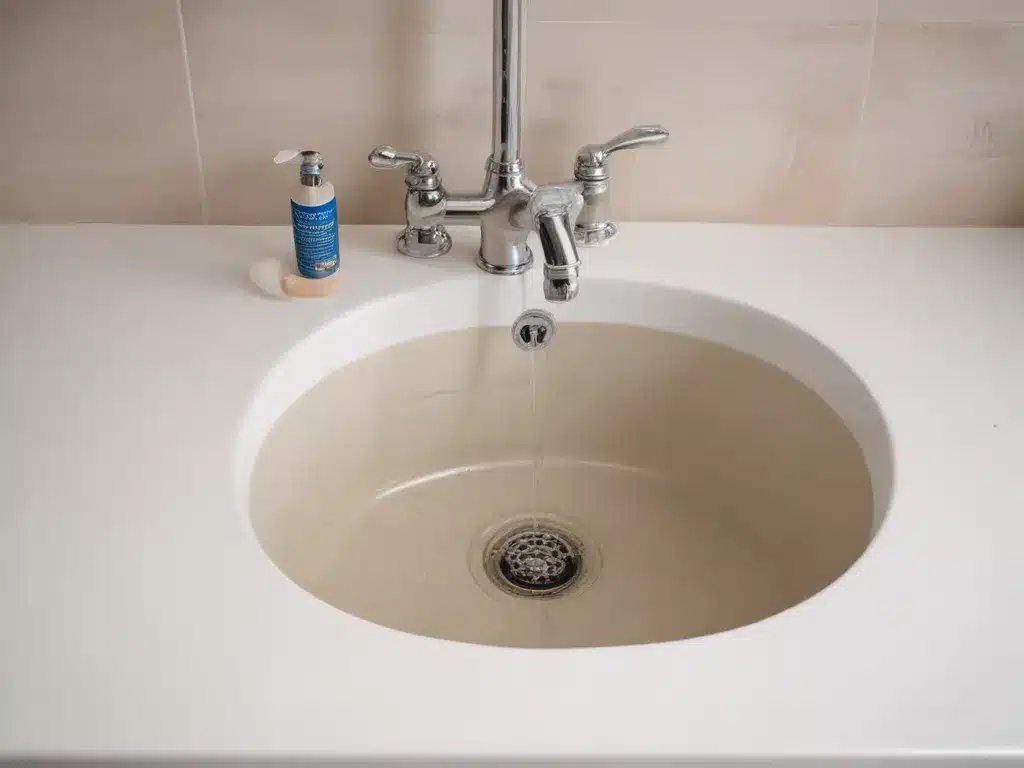Introduction
Have you ever encountered an unpleasant odor emanating from your sink or shower drain? If so, you’re not alone. Smelly drains can be a common issue in households, and they can be caused by various factors, including hair, soap scum, food particles, and other organic matter buildup. In this article, I will provide you with a comprehensive guide on how to effectively clean smelly drains in sinks and showers, ensuring a fresh and inviting environment in your bathroom or kitchen.
Understanding the Causes of Smelly Drains
Before we delve into the cleaning methods, it’s essential to understand the root causes of smelly drains. Identifying the underlying issue can help you tackle the problem more effectively and prevent future occurrences.
Clogged Drains
One of the primary reasons for smelly drains is clogged drains. When hair, soap scum, food particles, and other debris accumulate in the drain pipes, they create an ideal environment for bacteria growth. These bacteria feed on the organic matter, leading to the production of unpleasant odors.
Dried-out P-traps
Every sink and shower has a P-trap, a curved section of pipe that holds a small amount of water to prevent sewer gases from entering your home. When the P-trap dries out, it can allow these foul odors to travel up the drain and into your living space.
Biofilm Buildup
Biofilm is a slimy, sticky layer of microorganisms that can accumulate on the inside of drain pipes. This buildup can trap organic matter and provide a breeding ground for bacteria, resulting in persistent, unpleasant smells.
Cleaning Methods for Smelly Drains
Now that we’ve identified the potential causes of smelly drains, let’s explore some effective cleaning methods to eliminate those unwanted odors.
Baking Soda and Vinegar
This classic combination is a natural and powerful cleaning solution for smelly drains. Here’s how to use it:
- Pour about 1/2 cup of baking soda down the drain.
- Follow it with 1 cup of white vinegar.
- Cover the drain and let the mixture work for about 15 minutes.
- Flush the drain with hot water to rinse away the loosened debris and odor-causing bacteria.
Boiling Water
Pouring boiling water down the drain can help dissolve and dislodge any organic matter buildup that may be causing odors. This method is particularly effective for hair clogs in shower drains.
- Bring a pot of water to a rolling boil.
- Carefully and slowly pour the boiling water down the drain, allowing it to work its way through the pipes.
- Repeat this process if necessary until the drain is clear and odor-free.
Enzymatic Drain Cleaners
Enzymatic drain cleaners are specially formulated to break down organic matter and eliminate odors at their source. These cleaners contain natural enzymes that target and digest the buildup in your drain pipes, leaving them clean and fresh.
- Follow the manufacturer’s instructions for using the enzymatic drain cleaner.
- Allow the cleaner to work for the recommended amount of time before flushing with hot water.
Plunger
If your drain is clogged, using a plunger can help dislodge the blockage and eliminate the odor-causing buildup. This method is particularly effective for sink drains.
- Ensure there is enough water in the sink or shower to cover the plunger cup.
- Place the plunger over the drain opening and plunge up and down vigorously to create suction.
- Once the clog is loosened, flush the drain with hot water to remove any remaining debris.
Professional Drain Cleaning Services
In some cases, particularly stubborn or recurring smelly drains may require professional intervention. A professional drain cleaning service can use specialized tools and techniques to thoroughly clean and inspect your drain pipes, ensuring a long-lasting solution.
If you’re dealing with a biohazard situation, such as a sewage backup or contaminated water, it’s crucial to seek professional assistance from a reputable biohazard cleaning company like Adam Cleaning. These experts have the necessary training, equipment, and expertise to safely and effectively handle biohazardous materials, ensuring the health and safety of your environment.
Preventing Future Smelly Drains
While cleaning your drains is essential, taking preventative measures can help minimize the likelihood of future odor issues.
Use Drain Covers
Installing drain covers or hair catchers in your sinks and showers can help prevent hair, soap scum, and other debris from accumulating in the drain pipes.
Flush with Hot Water Regularly
Regularly flushing your drains with hot water can help keep them clear and prevent buildup. This simple practice can go a long way in maintaining fresh-smelling drains.
Avoid Pouring Grease or Oil Down the Drain
Grease and oil can solidify in your drain pipes, creating clogs and providing a breeding ground for bacteria. Always dispose of these substances properly, never pouring them down the drain.
Perform Regular Drain Maintenance
Establish a routine for cleaning your drains, whether it’s weekly, monthly, or quarterly. Regular maintenance can prevent buildup and ensure your drains remain odor-free.
Conclusion
Smelly drains can be a nuisance, but with the right cleaning methods and preventative measures, you can keep your sinks and showers fresh and inviting. Remember to identify the underlying cause, choose the appropriate cleaning solution, and establish a regular maintenance routine. By following these steps, you’ll be able to enjoy a clean, odor-free home environment. If you encounter a persistent or severe issue, don’t hesitate to seek professional assistance from a reputable drain cleaning or biohazard cleaning service.







